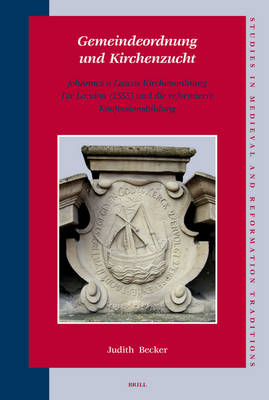Studies in Medieval and Reformation Traditions
1 primary work
Book 122
This study describes the origins of early Reformed confessional development using the example of those congregations of religious refugees most heavily influenced by John Laski: the congregation at Emden and the Dutch and French Strangers' Churches in London. At its center are questions about the congregation as the location of ecclesiology. The outlines of Laski's theology--which viewed the congregation as the communion of the body of Christ--are described in comparison to the approaches of other Reformers and in relationship to daily reality in the second half of the sixteenth century. Working from a rich base of source materials, the author discusses the development of teachings on church offices and the practice of church discipline, thus illuminating the self-understanding of the three congregations. Becker shows how reciprocal influences and attempts to conform led to the unification of doctrine and community life within these congregations.
